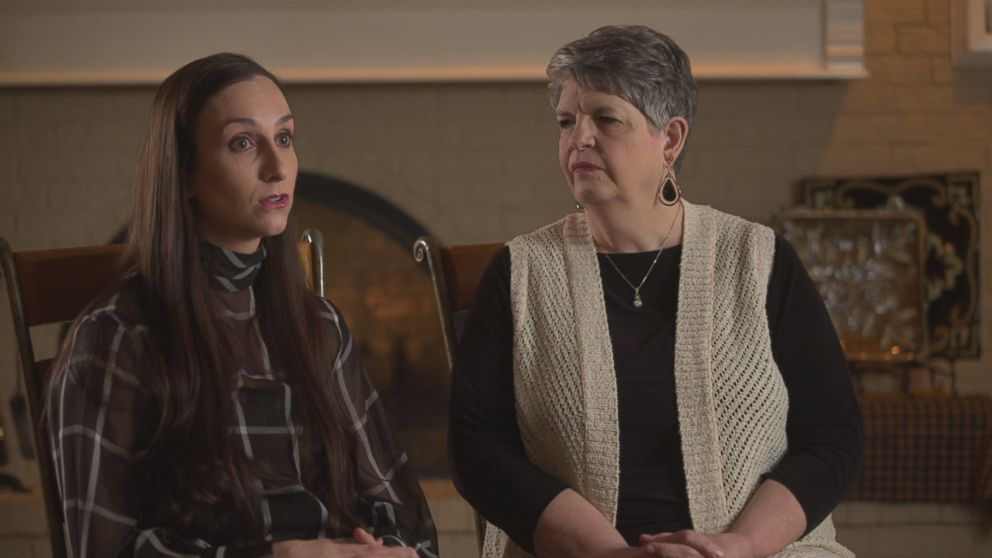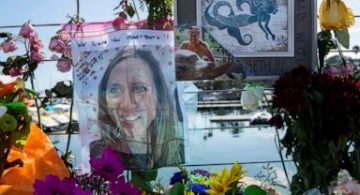
When prominent Texas plastic surgeon Dr. Thomas Michael Dixon was first put on trial in 2014 for allegedly masterminding a murder-for-hire plot to kill Dr. Joseph Sonnier, a Texas pathologist, Sonnier’s family thought they were finally getting justice.
Prosecutors thought they had a “slam dunk” case, but in a stunning outcome, two jurors serving during Mike Dixon’s first trial held out on reasonable doubt. The case was ruled a mistrial, which eventually forced a second trial in 2016, which resulted in Dixon’s conviction — a ruling that was ultimately overturned on an appeal.
Dixon is now out on bail, waiting to see if prosecutors are successful in their bid to get getting the state’s highest criminal court to reinstate his conviction. If they are not, they may take him to trial for a third time for the same first-degree murder charges he faced years ago. And for the first time, the two jurors who refused to convict him in 2014, resulting in the hung jury, are speaking out about their previous decisions in an exclusive interview with “20/20.”
“I knew what we had signed up for and I did not take any of it lightly,” Kristen Fuhrmann, one of those jurors, told “20/20.”
Watch the full story on “20/20” FRIDAY, March 8 at 9 p.m. ET on ABC.
Sonnier was found stabbed and shot to death in his Lubbock, Texas, home after an apparent break-in on July 10, 2012. Police questioned Dixon’s friend and business partner David Shepard after they received a tip from the man who lived with Shepard in which he said that Shepard had admitted to killing someone in Lubbock.
During his interrogation, Shepard readily admitted to police that he killed Sonnier, who was dating Dixon’s ex-girlfriend, Richelle Shetina, at the time.
Shepard later took a plea deal to avoid the death penalty in exchange for implicating Dixon as the man who orchestrated the hit and agreeing to testify against him in court.
“We were at a club in Amarillo, somebody volunteered and said, “Hit him on the head him with a board.” I said, “You could probably kill him.” And Doc went (TAPS FINGER TO NOSE) like that. “We’ll talk about that later,” Shepard told police during his interrogation.
Shepard then told police that he stabbed and shot Sonnier and that Dixon paid him with three silver bars and a box of expensive Cuban cigars in return.
Shepard pled no contest to the charge of capital murder and was sentenced to life without the possibility of parole. Matt Powell, district attorney at the time, then went into Dixon’s first trial in October 2014 armed with Shepard as what he believed was his star witness.
Dixon’s defense argued he had only paid Shepard to spy on and surveil Sonnier in an attempt to try to catch him with other women in hopes of ruining his relationship with Shetina. But the prosecution highlighted suspicious texts that Dixon had sent Shepard on the day of the murder, arguing that they were meant to egg on Shepard to carry out the killing.
“There were a couple text messages that [prosecutor] Matt Powell had mentioned — like, ‘whip and spur’ and ‘get her done,’” Fuhrmann said. “I think that the effort there was to make those sound a little bit more malicious than they actually were.”
Fuhrmann explained, “In west Texas, I feel like those are things that you say often. I mean I’ve heard ’em dozens of times. I don’t feel like the text messages were the strongest as far as conviction for him. There were a lot of text messages that had that undertone of take more. Like, take more pictures.”
And then, Shepard shocked the courtroom when he took the stand and said he acted alone in murdering Sonnier.
“He completely digressed from what his statement was to law enforcement in the fact that Mike Dixon didn’t have any involvement in this deal,” Powell told “20/20” in a previous interview. “We had no indication he wasn’t going to tell the truth.”
Shepard’s testimony on the stand was enough to sway Marsha Mahurin, the other juror at Dixon’s first trial who refused to convict him.
Mahurin said of his testimony, “I think they were really dependent on him, and it didn’t come through for ’em like they expected.”
“We did see the video testimony of Dave Shepard,” Fuhrmann said, agreeing with Mahurin. “And for that to be in such stark contrast of what his in-court testimony was really was very suspicious and raised a lot of red flags for me.”
The prosecutor tried to quickly recover from Shepard’s changed testimony by showing the video of Shepard’s confession to police.
Powell told “20/20” he remembered thinking, “’Okay, game on.’ We impeached him with his prior statements…he’s laying out in great detail what Mike Dixon did.”
But after two days of deliberation, the jury remained deadlocked and the judge declared a mistrial.
“I was upset with the jury. How could they not see?” Shetina told “20/20” in a previous interview. “The evidence, to me, was very, very clear that he was guilty. He did this.”
The two holdout jurors, Mahurin and Fuhrmann, stand by their decision to vote against convicting Dixon. In considering the evidence, Mahurin said she felt Dixon wasn’t pushing Shepard to kill. “I felt like he was pushing him to take photographs,” she said.
As for the silver bars as payment, “I always thought that, yes, [Dixon] probably did give [Shepard] silver bars, but that doesn’t mean he gave him silver bars for murdering somebody,” Mahurin said.
Fuhrmann also questioned whether the bars were given in exchange for murdering Sonnier. “Well, when they were discussing the exchange of the silver bars, there was actually no determination on when those were exchanged,” she said.
Fuhrmann also pointed out that the jury was instructed to not use the content of Shepard’s video interrogation with police to inform their decision, but only to determine if they believed his testimony on the stand.
“Our jury got to see video of the original confession that Dave Shepherd gave the police. And after we saw that, the charge from the judge, was that we were not to use the video content to convict Mike Dixon,” Fuhrmann said. “We were supposed to use [the video confession] to determine if we believed Dave Shepherd’s in-court testimony or not. That was the sole purpose. … And it became clear in the deliberation room that there was still references by some of the jurors back to that original confession, that video content.”
But other jurors felt differently and thought Dixon should be convicted based on the evidence presented at trial, even despite Shepard’s surprising flip-flop.
Doug Moore, the jury foreman, said the video confession “really tied together a lot of the facts we had heard in testimony. So there was little doubt in my mind at that point of guilty for me.”
Moore said “it became apparent” that two jurors, Mahurin and Fuhrmann, didn’t agree with him and “were really not going to change their mind.”
Maria Lara, another juror in the case, said Shepard’s surprise testimony also threw her “for a loop at first” but she still voted to convict Dixon. She said she remembered thinking of the two holdout jurors, “How do they have any doubt when the evidence was all there?”
“It’s frustrating, especially those of us who had our stand and how we believed,” Lara said. “And for all that, it seemed like for nothing.”
But as frustrated as other jurors seemed with Mahurin and Fuhrmann, they too said they were frustrated at how the deliberation process had gone.
“I just feel like that we had so many people…from the time we were supposed to make our decision, and they just, there was no discussion,” Mahurin said. “[The other jurors] said [Dixon] was guilty, and they weren’t going to talk about it.”
When Dixon went to trial a second time in 2015, Shepard did not take the stand. Instead, his own daughter, Haley Shepard, testified that she believes her father lied on the stand.
“[My father] had a chance to make it right…and he completely ruined it,” Haley Shepard told “20/20” in a previous interview. “Never would’ve ever thought that he would do something like that.”
David Shepard sat down for an interview with “20/20” in 2016 and said that he and Dixon never intended for Sonnier to die. He said that Dixon was just telling him to stay on target to “get a picture of [Sonnier] with another girl beside Richelle,” but when Shepard met Sonnier face to face, “things got out of hand.”
Shepard said the gun fired “unintentionally” and that when he leaned in Sonnier’s window to see if he was okay, he fell into the living room. By then, Sonnier had stumbled away. Shepard says he discovered Sonnier lying prone in his garage, taking his last breath. He said that in a bizarre and misguided attempt to cover up what he claimed was an accidental shooting, he then stabbed Sonnier’s lifeless body.
He also told “20/20” that he lied to police when he told them Dixon had masterminded a murder-for-hire plot.
“I embellished, told [police] a story,” Shepard told “20/20” at the time. “Everybody sensationalized this whole story because of some love triangle and all this and a murder-for-hire.”
As part of his plea deal with prosecutors, Shepard waived his right to appeal his conviction.
In November 2015, a jury for Dixon’s second trial convicted him on two counts of capital murder. He was sentenced to life in prison without parole.
But three years later, in 2018, appellate judges in Amarillo, Texas, overturned Dixon’s conviction. Dixon’s current appellate attorney Cynthia Orr successfully appealed the conviction on the grounds that police did not have a warrant for the 166 days of Dixon’s cell phone tower data that prosecutors used against him in court. Secondly, there were a few days when the trial was not open to the public, which Orr argued violated Dixon’s right to a public trial.
Orr told “20/20” that Dixon and his family are victims, too. “It’s horrible that they’re having to go through this over and over again, till they can get a fair trial,” she said.
“He’s now presumed innocent because, in Texas, until the appeal’s over with, the conviction’s not final. He starts with a clean slate. So we start over from scratch,” she said. “I’m confident the overturn of the conviction will be upheld and see Mike’s ultimate vindication.”





